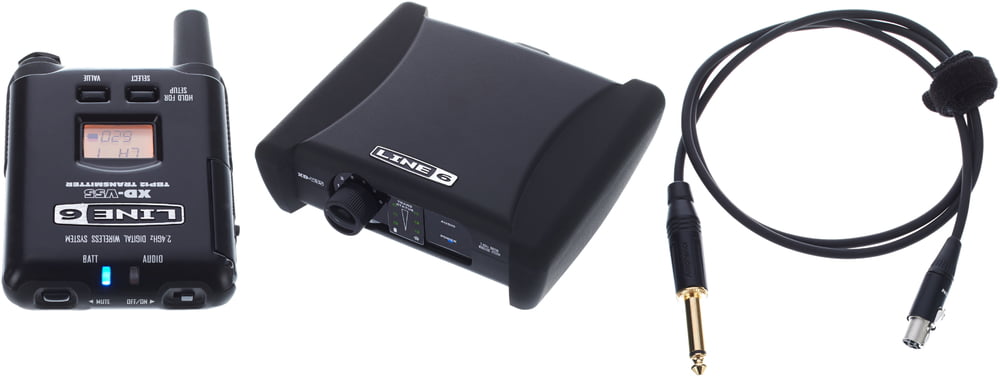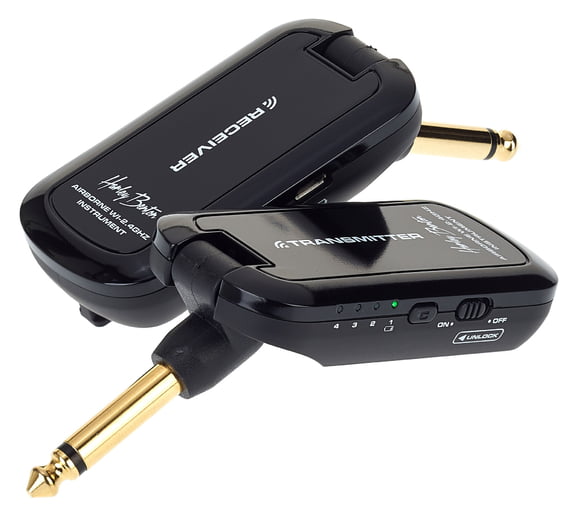2. Transmission / Reception
Instead of the usual instrument cable, wireless systems use radio waves for transmission of the audio signal. The transmitter, which is connected to the guitar, converts the guitar output into an FM (Frequency Modulation) radio signal and broadcasts this using an integral antenna. In some rare cases, other modulation schemes are employed AM (Amplitude Modulation) for example. Digital transmission of wireless audio, as used in Bluetooth headphones is also available, but this technology is more expensive, and only recently considered mature enough to offer the guitarist a reliable hook-up. But more on digital later - at the time of writing, FM is by far the most common method in use.

Line6 XD-V35/55 Guitar Bundle
The receiver, which is directly connected to the amplification system (maybe through your pedals first), picks up the signal via its own antenna and subsequently converts the radio waves back into the original guitar signal, with as little distortion or degradation as possible. In principle, for each transmitter there should be a single unique receiver. Different transmitters used simultaneously in the same local area must operate on different channels, so as not to interfere with one another, and just like a standard analogue radio set, a receiver can only tune in to one channel at a time, so multiple receivers must be used and each set to the channel of its corresponding transmitter. Some receivers are modular and appear to receive several channels at once, but in reality, these simply use several receivers in a single housing and offer no technical advantage over a group of discrete receivers - there may well be cost and space savings though.
Wireless systems are usually supplied as a complete set so that transmitters and receivers are well matched. It is possible to mix-and-match devices from different manufacturers, but some skill is needed to optimise performance, and in some cases, proprietary hand-shaking communication between transmitter and receiver will be lost. The transmitter unit will either be designed to attach to your guitar strap, in which case a short jack lead is needed to connect the guitar output to the transmitter input, or the transmitter will be a single unit with an integrated jack plug to insert directly into your guitar. These fully integrated types usually come in two flavours in order to accommodate the different angles of the Fender Stratocaster style output (diagonally set), and the Gibson Les Paul (right angled) configuration.

Harley Benton AirBorne Guitar wireless system.




